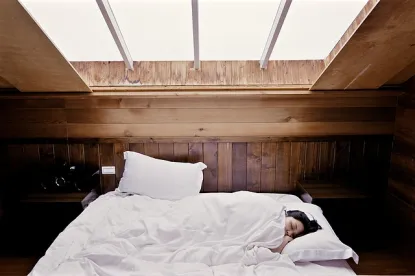Traumatic brain injury (TBI) occurs when an external force, usually a blow or jolt to the head, disrupts the normal functions of the brain. Even a mild TBI or concussion can cause cognitive, emotional, behavioral, and physical impairments.
Often, changes in sleep patterns occur after a concussion. In fact, 30 to 70 percent of patients who have experienced a TBI experience sleep problems. The seriousness of the brain injury is not a predictor of the severity of sleep-related symptoms. Such symptoms include insomnia, increased sleep need, and excessive daytime sleepiness. For some TBI patients, although they are sleeping more than usual each night, they still experience excessive daytime sleepiness. Other sleep disorders, such as sleep-related breathing disorder, post-traumatic hypersomnia, and movement disorders may also result from a TBI. Repetitive TBIs may increase the risk of symptoms.
Sleep disruptions may negatively impact recovery and quality of life in a TBI patient or aggravate other medical conditions. Sleep deprivation can also mimic or aggravate other TBI symptoms, including depression and anxiety.
Sleep studies may be recommended for patients with concussions and other brain injuries. According to Johns Hopkins Medicine, sleep studies usually involve:
-
Measuring sleep brain wave activity,which can show doctors how quickly you fall asleep, how deeply you sleep and whether rest quality is good
-
Assessing leg movementsto detect restless legs syndrome
-
Monitoring breathingto help diagnose sleep apnea.
Often patients undergo sleep studies in a sleep lab, where they are observed by a researcher in a controlled environment. However, some sleep studies can be conducted in a patient’s own home. Cell phone apps and wearable tracking devices may also be used to provide data to researchers and doctors as an aide in diagnosing sleep disorders.
Some patients continue to experience sleep disturbances for months or years after the brain injury. Further studies are needed to clarify how and why sleep disturbances affect patients with TBI and which treatments may offer some relief.



 />i
/>i

